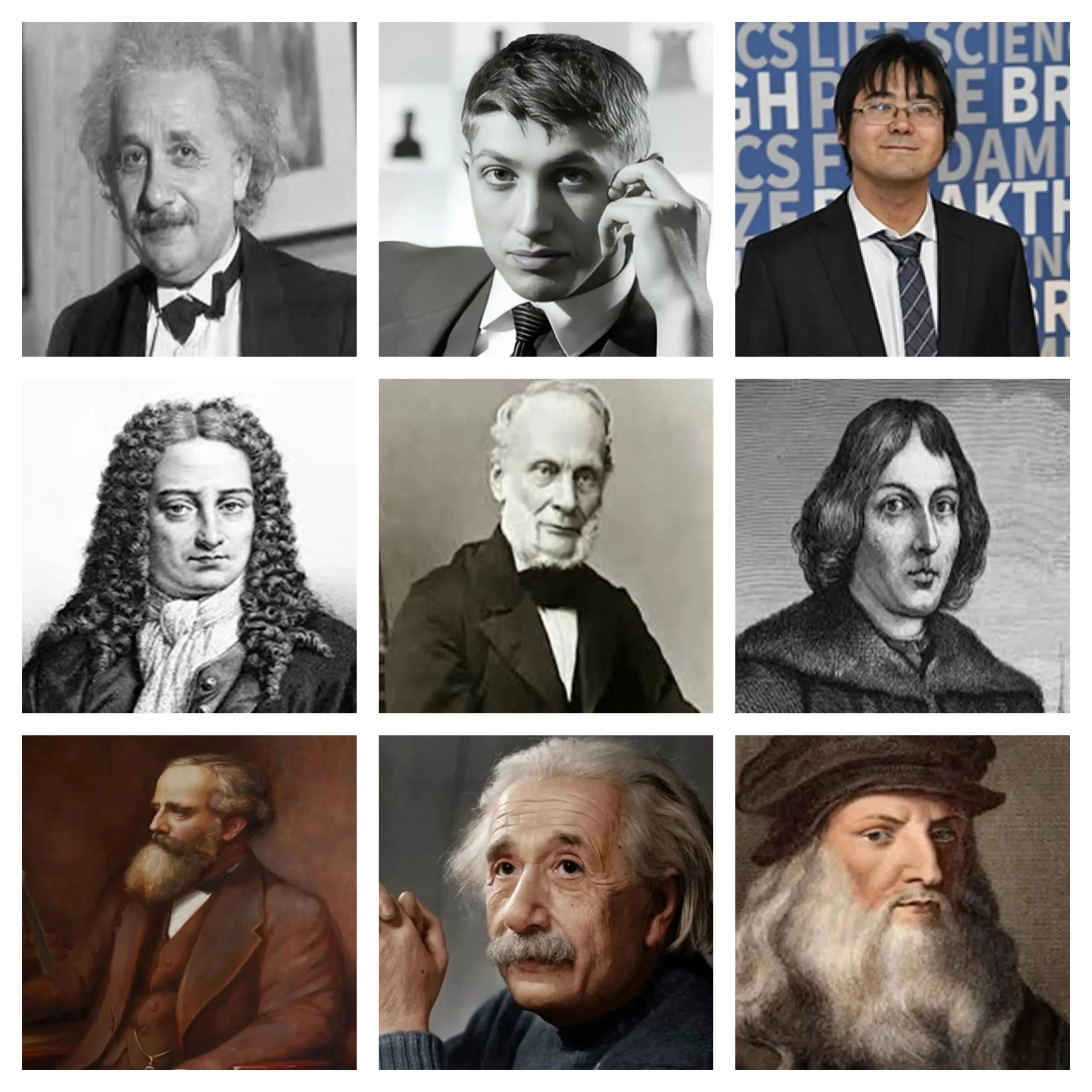IQ is obviously not the most accurate and definitive indicator. Still, it makes much of its owner’s extraordinary intelligence and unique abilities. Multiple methods exist for computing this indication.
For example, one can estimate the IQ of people who lived long before this intelligence criterion was created using the Cox methodology.
It uses an individual’s accomplishments for each of their ten years to forecast their IQ. Depending on who conducted the study, the Cox technique produces varied results. But it was still possible to identify the best brains in history.
1. Leonardo da Vinci, 180-220
Leonardo da Vinci was an engineer, painter, sculptor, architect, and inventor. Among his articles are designs for everyday items such as a pepper mill, grill, corkscrew, and pot lid. His interests, nonetheless, didn’t end there.
Da Vinci’s interests extended beyond cartography to include anatomy, geology, botany, music, and cookery. This versatile man has an estimated IQ of between 180 and 220 based on a number of signals.
To be sure, Leonardo da Vinci was a great procrastinator and a thinker, but few of his ideas were actually put into practice.
On the other hand, they were a source of inspiration and a catalyst for many breakthroughs in mechanical engineering.
2. Johann Goethe, 210-225
According to Einstein, this German playwright, novelist, politician, and diplomat was “the last man in the world who knew everything.” Goethe is well renowned for his literary works, which include Faust, The Sorrows of Young Werther, and The King of the Forest.
He also carried out research, mostly in the field of natural history. He also collected a good number of minerals and had a keen interest in geology.
The typical IQ range for Johann Goethe is considered to be 210–225 points. Notably, just 0.2% of people make it to the list of geniuses, and to be considered, you have to score higher than 141.
3. Isaac Newton, 190-200
The English mathematician and scientist Isaac Newton is renowned for creating the idea of universal gravitation, which was essential to the scientific revolution of the twelfth century.
The IQ range for this science figure is 190–200 points. Furthermore, “Mathematical Beginnings of Natural Philosophy,” one of the most influential physics texts ever written, was written by him.
Even though some of Newton’s predictions were later proven to be false, the universal principles of gravity that he established at the time were unparalleled in the scientific community.
4. Albert Einstein, 205-225
Before you even clicked on this website, you probably thought that Einstein would be considered one of the greatest men in human history, and you were right. His IQ is thought to be in the range of 205-225.
The most famous contribution of this theoretical physicist is the formula E = mc², which expresses the mass-energy equivalency. Up to his death in 1955, Einstein sought to refute quantum theory in addition to creating his theory of relativity.
5. James Maxwell, 190-205
James Maxwell was a Scottish mathematician and a scientist. It is said that he invented the conventional understanding of electromagnetic learning.
He is widely recognized as the originator of quantum theory. The IQ range for this scientific figure is 190–205.
6. Nicolaus Copernicus, 160-200
Copernicus, a mathematician and astronomer, was born in Poland. He discovered the heliocentric model of the universe, which maintains that the Sun, not Earth, is the center of the solar system.
His idea completely changed the field of space research. The estimated IQ range for Copernicus is 160–200
.
The church forbade On the Rotation of the Heavenly Spheres for almost three decades, but it was published with restrictions after his death in 1543.
7. Rudolf Clausius, 190-205
Rudolf Clausius was a German mathematician and physicist with an IQ ranging from 190 to 250. He also came up with the term “entropy,” developed the kinetic theory of gases, and explained the second law of thermodynamics.
He was also one of the first scientists to suggest that molecules are made up of atoms that are in constant communication with one another.
Later, the theory of electrolytic dissociation—which describes how molecules disintegrate into charged atoms and ions—was developed using this concept as its basis.
8. Gottfried Leibniz,182-205
German logician and philosopher Gottfried Leibniz is credited with developing differential and integral calculus. His estimated IQ falls between 182 and 205.
In 1676, this scientist developed dynamics, a new set of rules of motion, by replacing the idea of conservation of motion with kinetic energy.
His writings on prospective worlds, necessary and accidental truths, and the notions of adequate reason also contributed to the philosophy of language.
9. Christopher Hirata, 225
Christopher Hirata is a former astronomer and astrophysics prodigy with an IQ of 225. At the age of 13, he gained fame by becoming the youngest winner of the International Physics Olympiad in 1996.
He enrolled in the California Institute of Technology a year later. Christopher was recruited by NASA when he turned sixteen. He obtained his PhD at the age of 22 while working on a project to study Mars colonization.
10. William Sidis, 200-300
William Sidis is an American child prodigy whose IQ ranges from 200 to 300, depending on the source. At two years old, he was able to type letters on a typewriter in both English and French and read the New York Times.
At the age of nine, Sidis registered for Harvard University, but his entrance was rejected on the grounds of “emotional immaturity.” After two years of studies at Tufts, he transferred to Harvard when he was eleven years old.
He was trailed about by the press. To stay out of the spotlight, Sidis turns reticent and begins taking on aliases while roaming from town to town. At forty-six, he suffered a massive stroke and died.
